E-Justice in Guinea-Bissau - learning what works or not
March 9, 2023
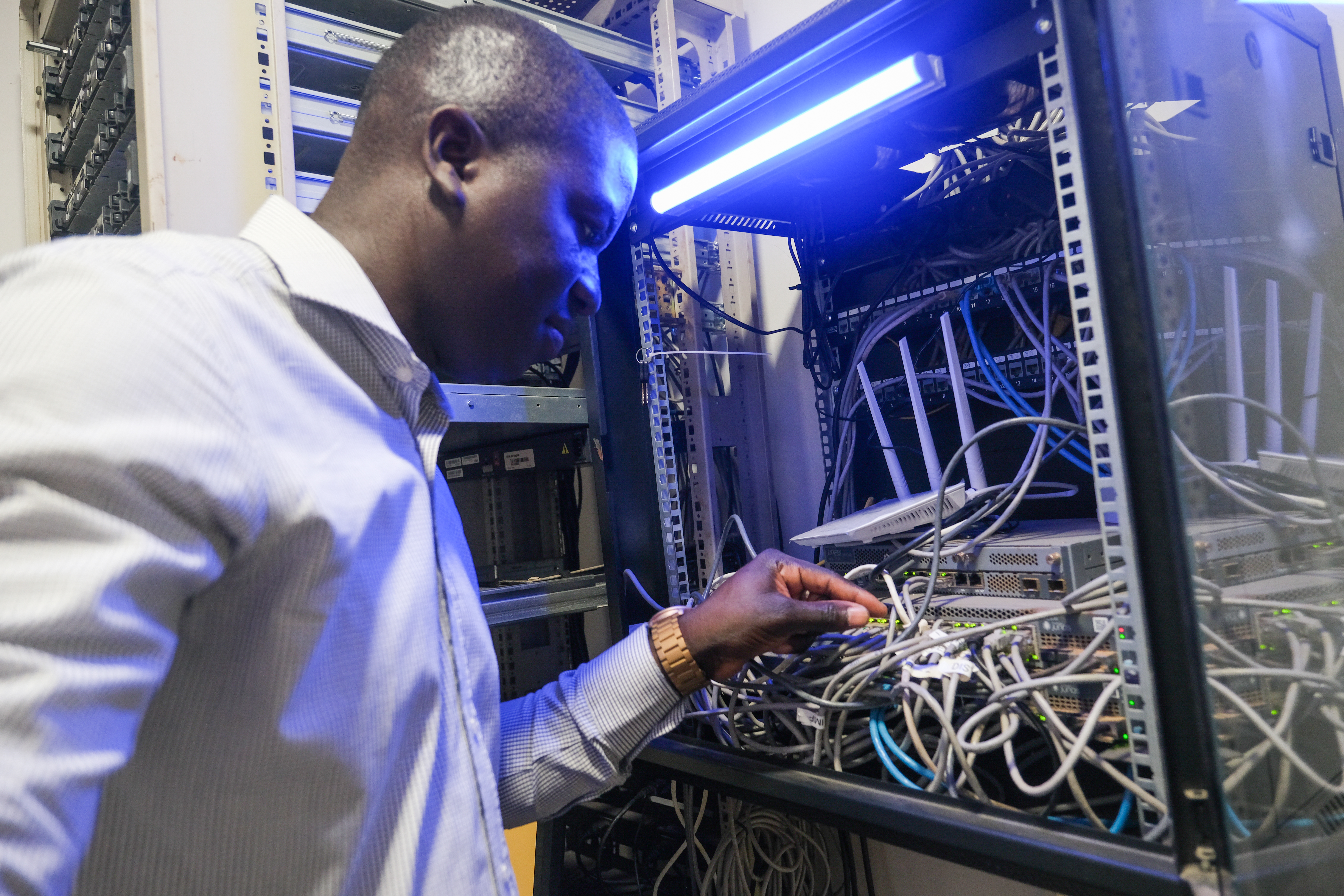
Digitalization in the Ministry of Justice
In a world that is rapidly digitizing, public services need to keep up with the pace of innovation. Digital processes can bring about significant benefits to justice services, such as reducing human errors, creating better scalability, lowering operational costs, and providing more efficient workflows and insights. In the words of Mariana Mazzucato, Director of the Institute for Innovation and Public Purpose at University College, London, "Digitalization is no longer an option. It is a necessity."
Exploring a portfolio of Access to Public Service Delivery
Since 2021 the Accelerator Lab Guinea Bissau has been working closely with the Ministry of Justice and the UNDP Democratic Governance Cluster, leveraging multiple points of intervention in a portfolio focusing on how the population of Guinea Bissau can access better justice services. In our latest blog, we look at our solutions mapping and exploration phase which brought different stakeholders together to understand the existing system, its challenges as well as possible solutions. Working under the umbrella of Access to Justice, our Lab has experimented in various learning cycles such as improving physical spaces providing public services, Behavioral Insights on the House of Justice in Buba and Mobile Justice. Looking back at what we have learned so far, it stood clear that the next step would be to tap into the potential of E-Justice as it is an area that can improve public service and fill many of the existing gaps.
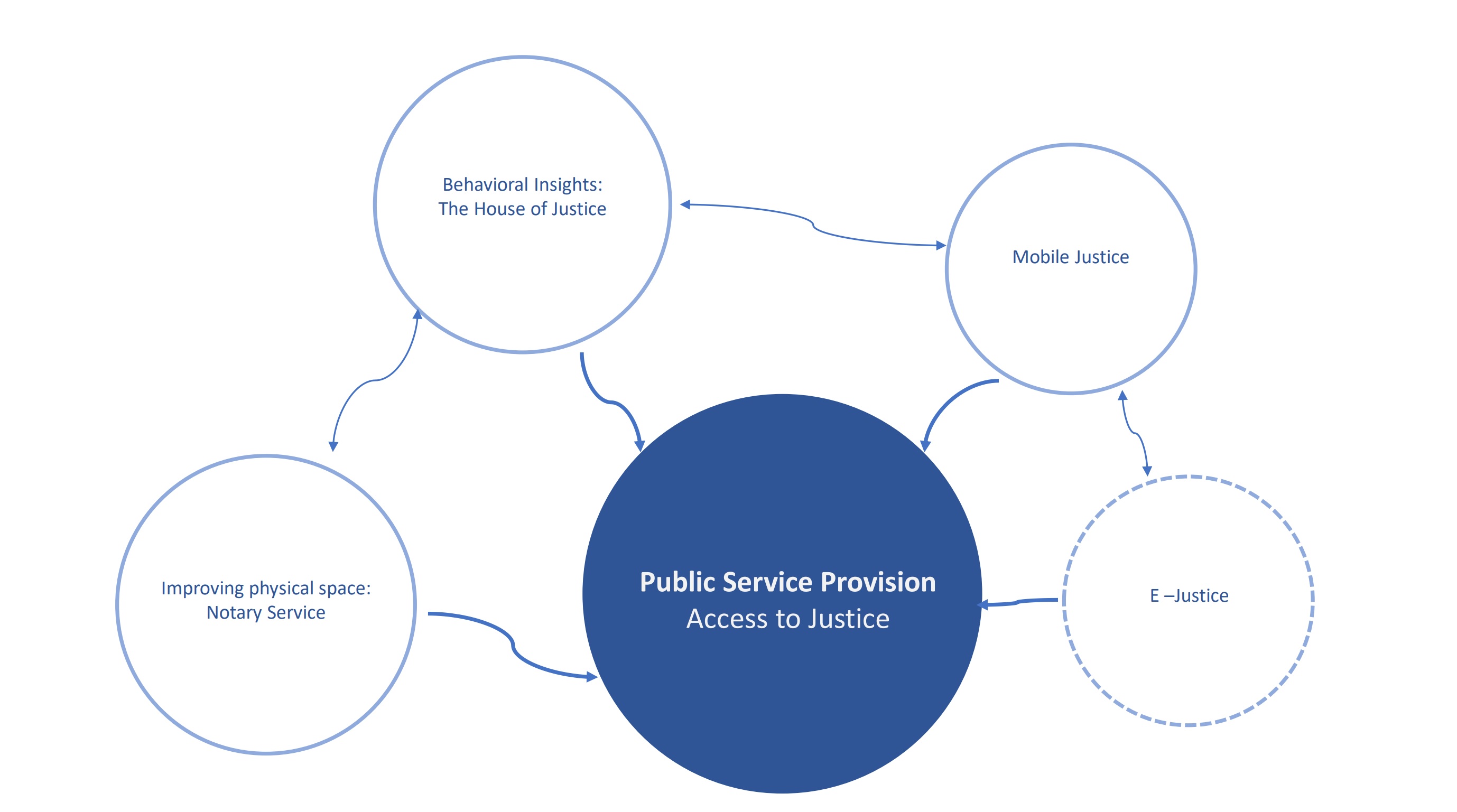
Diagram showing the Portfolio Approach of Accelerator Lab Guinea Bissau
Experimenting with E-Justice
The Lab conducted two tests to explore the potential of e-Justice in Guinea Bissau. The first test focused on providing digital training and equipment to staff of the tribunals and CAJ in the regions to improve their digital skills and attitudes towards using digital technologies. The second test focused on collecting data digitally to produce real-time statistics, which can lay the groundwork for informed decision-making. Both tests were carried out using:
1. The Justice Information and Data Management System “SIGDAJ”, a local solution that had been developed by the ICT Director at the Ministry of Justice with the purpose to digitalize all services in the Ministry of Justice.
2. An adaptation of the DHIS2 platform for the justice sector (DHIS2 is an open source, web-based platform most used as a health management information system).
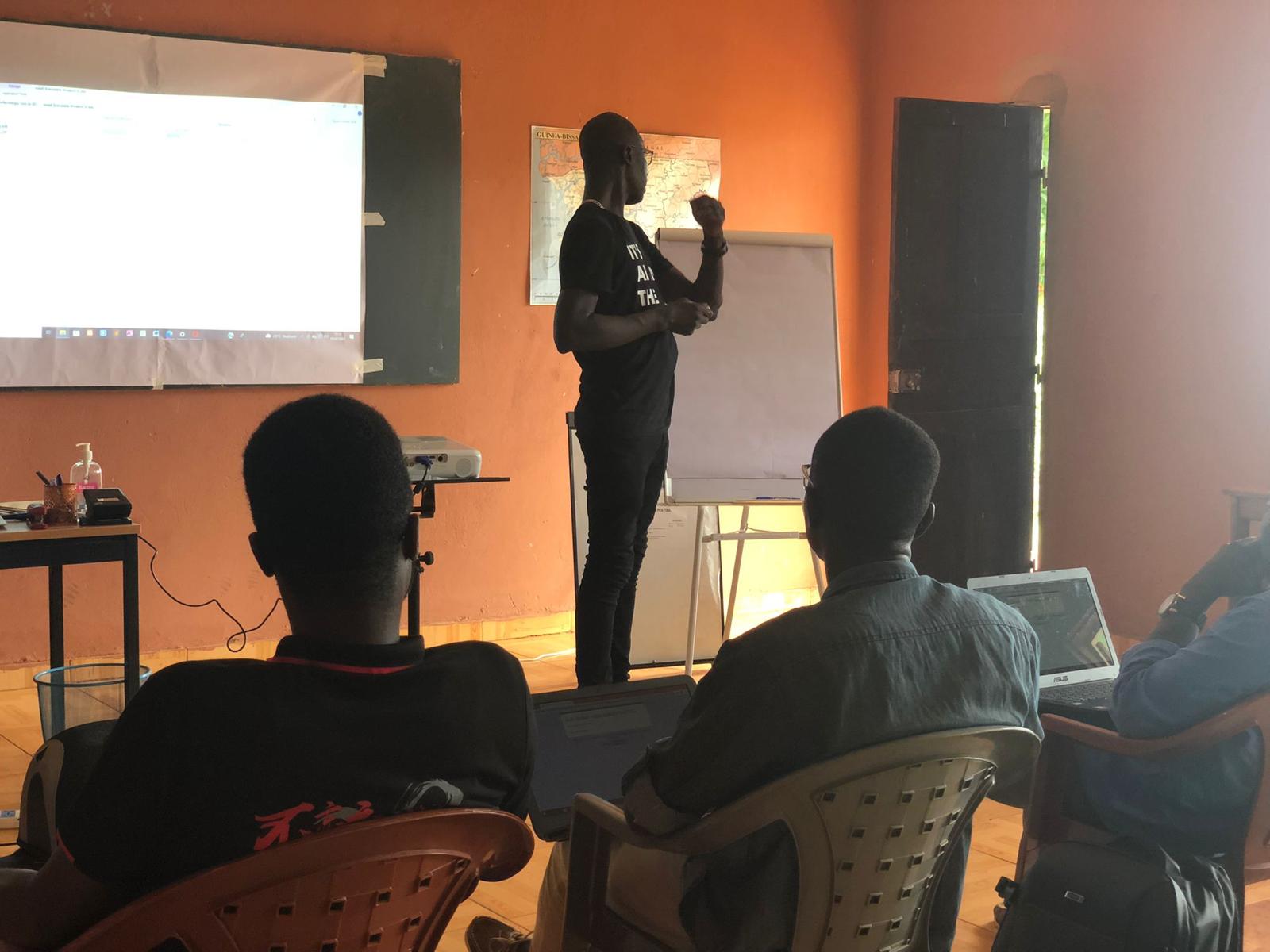
Digital training of staff from CAJ and the Tribunal in Buba
Test 1 - Digital Skills and Attitudes
Hypothesis “IF digitization training and equipment is provided to staff of the tribunals and the Center for Access to Justice (CAJ) in the regions THEN the staff´s digital skills and attitudes towards using digital technologies will improve and data will be able to flow into SIGDAJ in a decentralized manner."
The first test ran for two weeks and focused on digitizing existing documents that were still on paper from CAJ, the criminal register and the tribunal of Buba. Training and digital devices were provided to staff who were also part of the digitalization team as they will continue to feed the system in the future. When every document was digitized, and the data was connected to the information system SIGDAJ, we compared the skills and attitude of the staff towards digitalization of services through a pre-post survey.
Results
A baseline survey showed that 92% of the staff never had received any digital training in their work place. After digital training and equipment were received, the survey showed an improvement in staff´s perception of their own digital skills as well as the efficiency of work process and production of statistics.
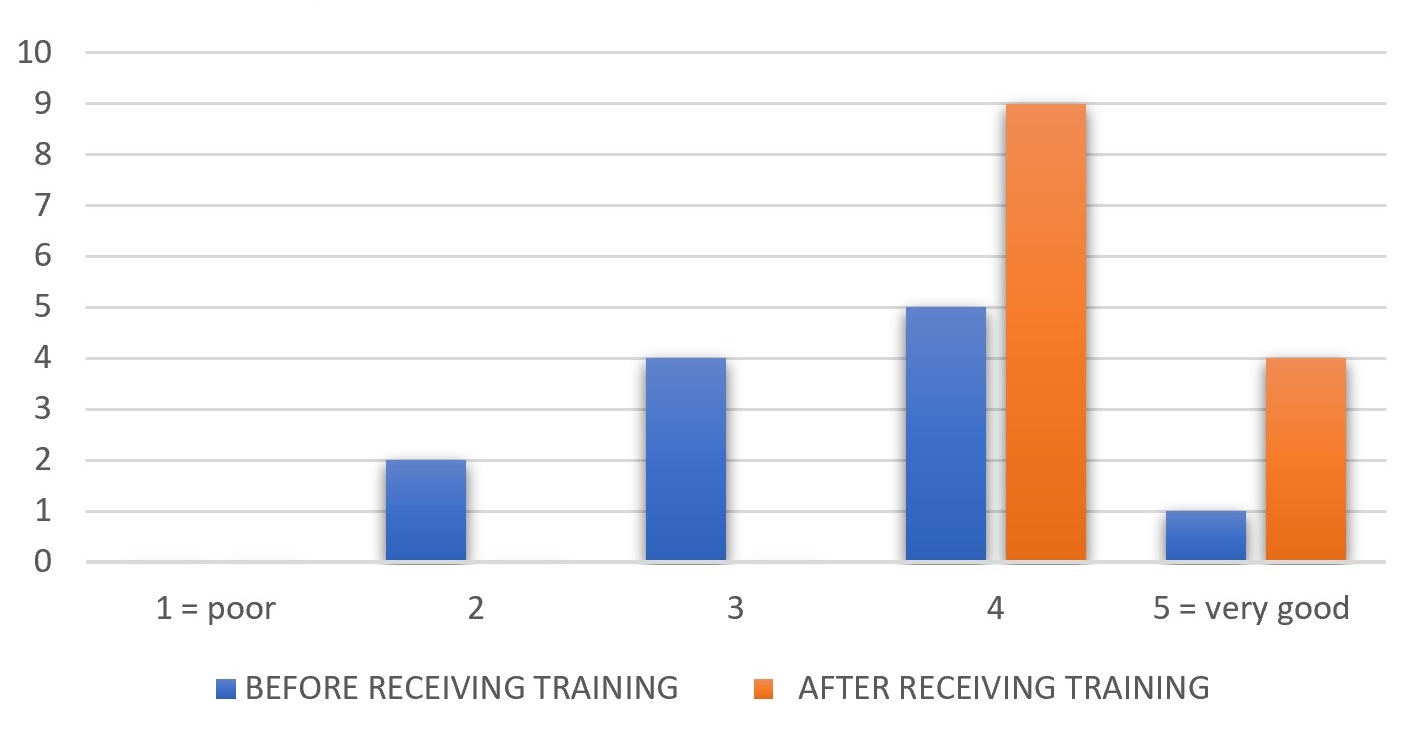
Pre-post survey results: Digital skills
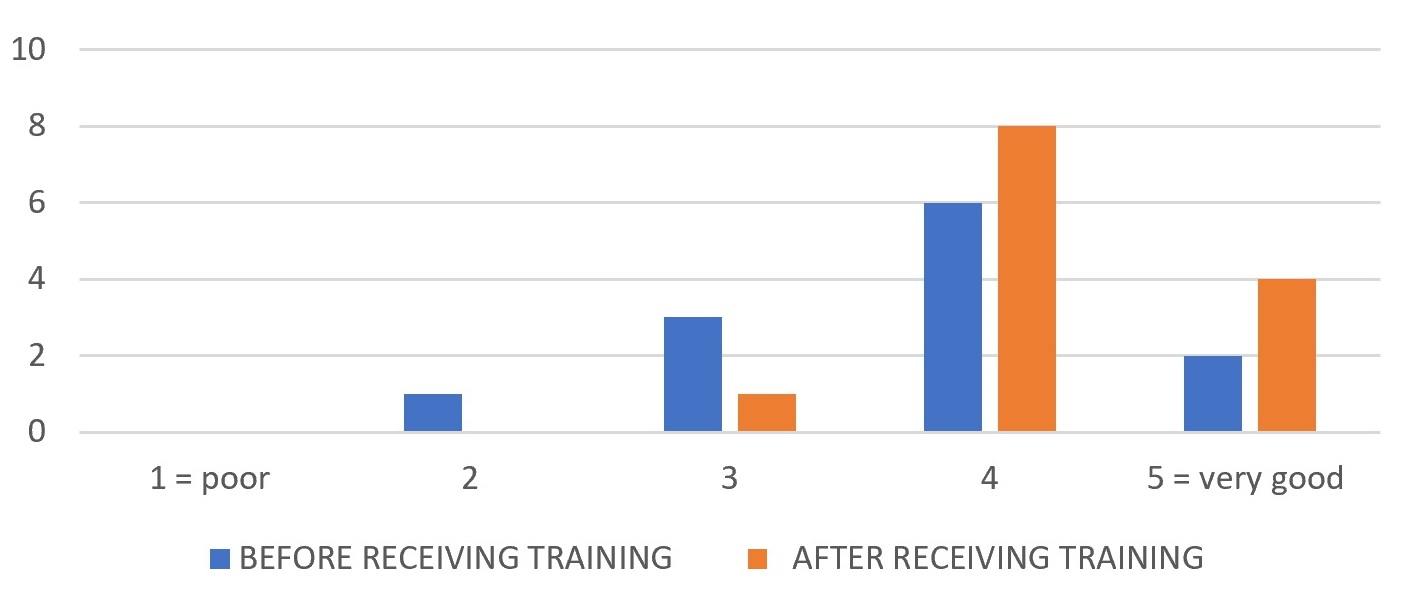
Pre-post survey results: Work Process Efficiency
Test 2 - Statistics
Hypothesis “IF data is collected digitally THEN it will be easier to produce real-time statistics which can lay the ground for informed decision making."
On the first day in Buba, a list of inventories was made for CAJ and the Court, showing the statistics available at the time of our arrival. When all cases of the court and CAJ files in Buba had been digitised, we compared the type of statistics available before and after the data was digitised and linked to SIGDAJ.
Results
Results showed that digitizing cases directly into the data information system, allowed for access to real time statistics as well as a higher level of efficiency. An improvement was evident compared to the previous scenario where cases entered into the computer using Microsoft Word to facilitate counting of the total number of cases per year and per judge.
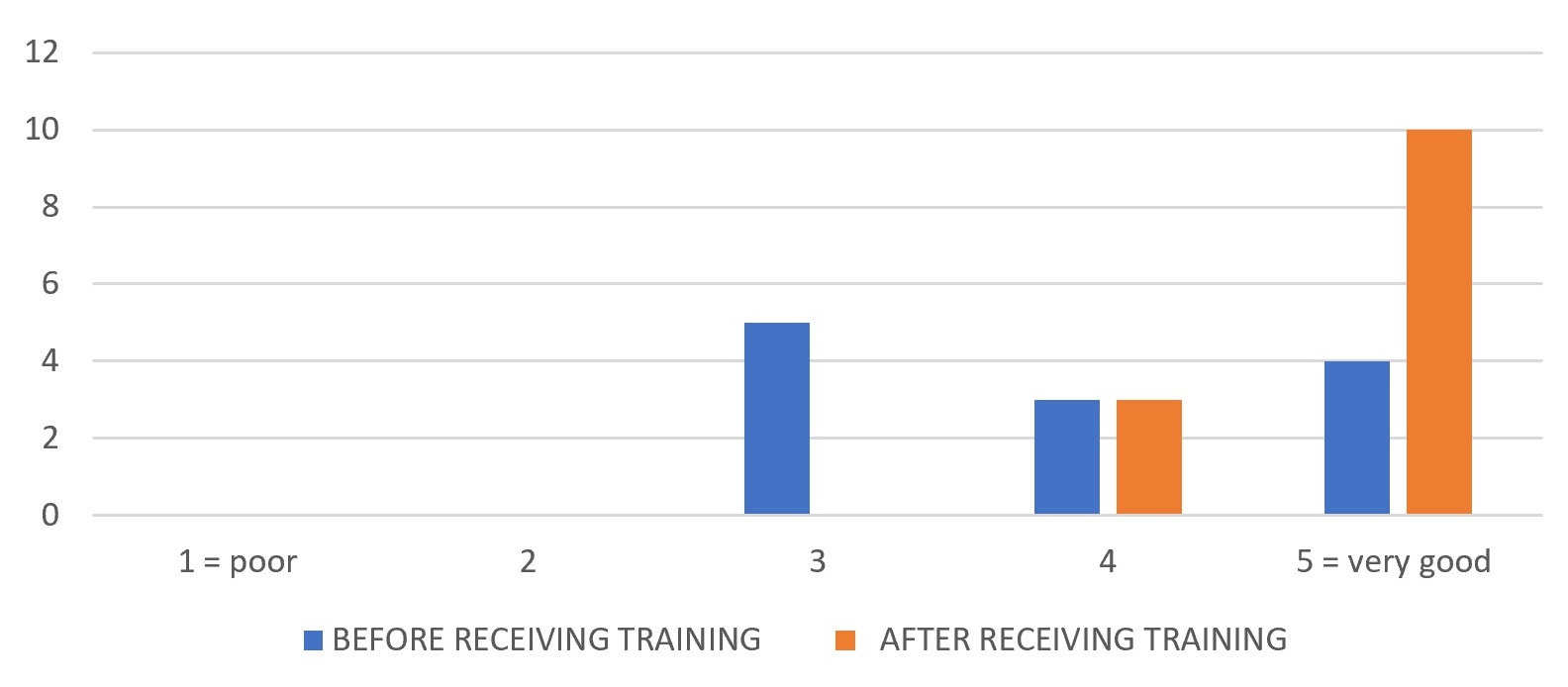
Pre-post survey results: Statistics
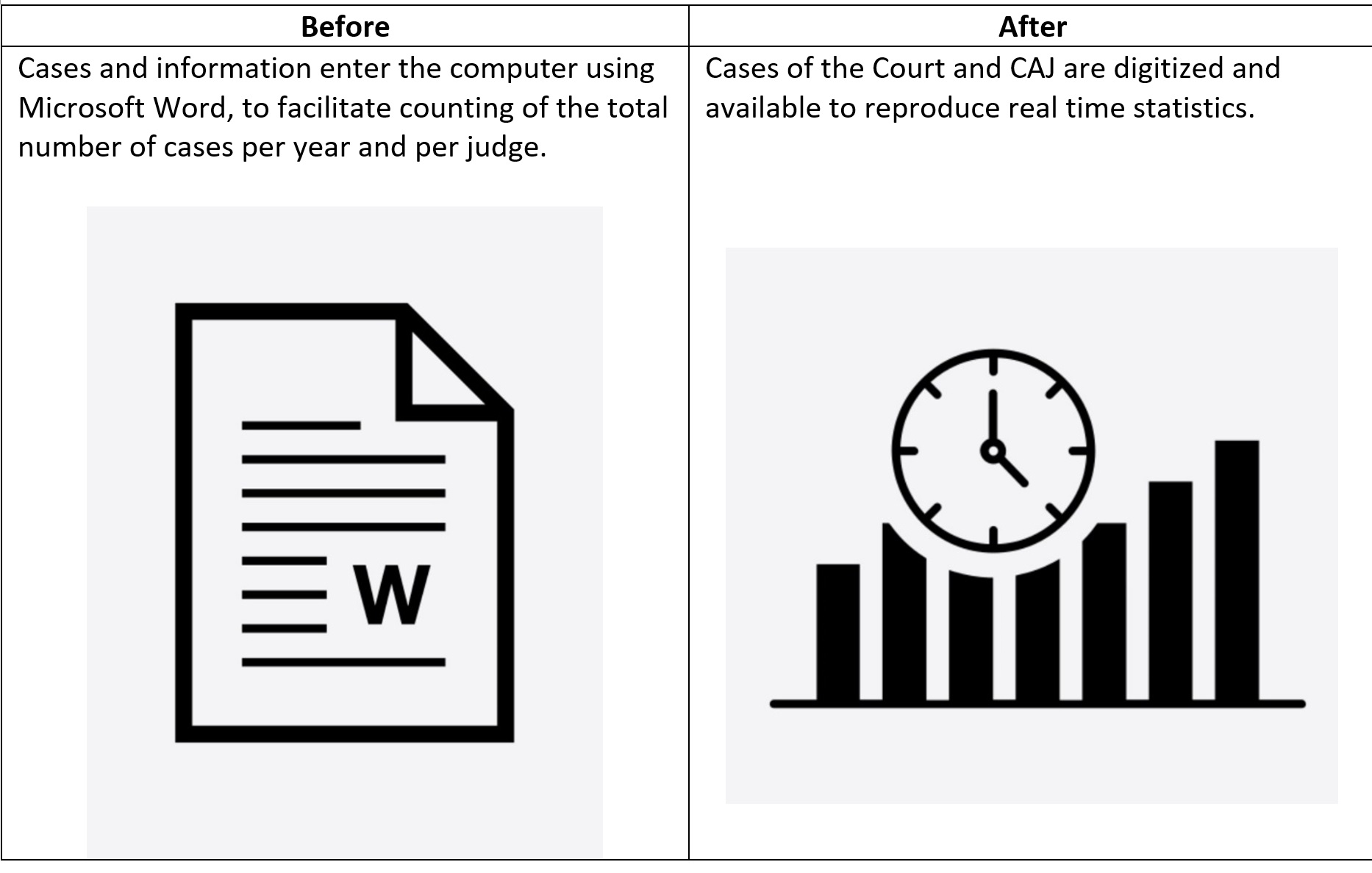
Statistical information available before and after test
Lessons learned
These first tests were a quick and cheap way to learn more about E-Justice in Guinea Bissau. The main challenges faced were lack of electricity, connectivity and availability of Internet. We also learned that:
- The strengthening of the digital capacity of the staff and the availability of IT equipment for the Ministry of Justice can increase the efficiency and operational performance of justice services
- Going digital can make public service faster and allowing the production of real-time information, which is ideal for evidence-based decision making.
- The local solution SIGDAJ proved to be a possible information and data management system needed for the Ministry of Justice to go digital, although many features of the system still have to be developed and improved.
- The adaptation of the DHIS2 platform for the justice sector allowed CAJ to have real-time monitoring using tablets for data collection directly from the users.
- Working with a Portfolio Approach using multiple points of intervention, is needed to tackle the complex challenge of Access to Justice in Guinea Bissau. Combining the digitisation of justice cases, the development of the Houses of Justice, the Mobile Justice registration Unit, CAJ and Access to Justice events, UNDP Guinea Bissau can contribute to the improvement of the justice system in the country, bringing justice services closer to the population.
Next steps
The tests allowed us to learn more about how digitalization can make justice information and judicial services more accessible to the entire population, with potential of reaching the diaspora. With the support of NOSI (Núcleo Operacional da Sociedade de Informação) and UNDP Governance Cluster, the next steps for our Lab will be to develop a justice portal with the Ministry of Justice, to test the possibility of citizens applying for their criminal records online. As the world continues to digitize, it is vital for public services to keep up with the pace of innovation to meet the evolving needs of their population. Stay tuned for our next blog in this series on E- Justice in Guinea Bissau.

 Locations
Locations
